Regular dental hygiene visits allow us to keep your teeth in the best shape possible. Performing the cleaning and exam at 6 month intervals allows us to spot problems and correct them before they can turn into bigger problems. Routine X-Rays can help us find common issues like tooth decay and gum disease, which left undetected, can result in tooth loss. ( See our prevention page )
OUR DENTAL SERVICES
Your teeth are the healthiest the way God made them before any type of dental intervention. At Geneva Family Dentistry, we make every effort to help you prevent dental decay and gum disease through our customized hygiene and prevention plans. If your teeth do need intervention with a restoration (filling, crown, etc.) or replacement (implants, partials, dentures, etc.), we will do our best to make sure it is a quality product that will serve you for years to come. See why people travel from all over the Wiregrass area to Geneva Family Dentistry.
- PREVENTIVE CARE
- CEREC CROWNS
- IMPLANTS
- ENDODONTICS (ROOT CANALS)
- PEDIATRIC DENTISTRY
- FILLINGS
- COSMETIC DENTISTRY AND WHITENING
- ORAL SURGERY
- DENTURES
- TREATMENT OF PERIODONTAL DISEASE
- BITEGAURDS
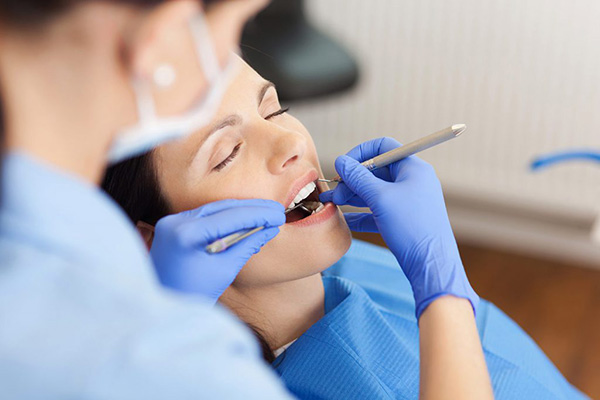
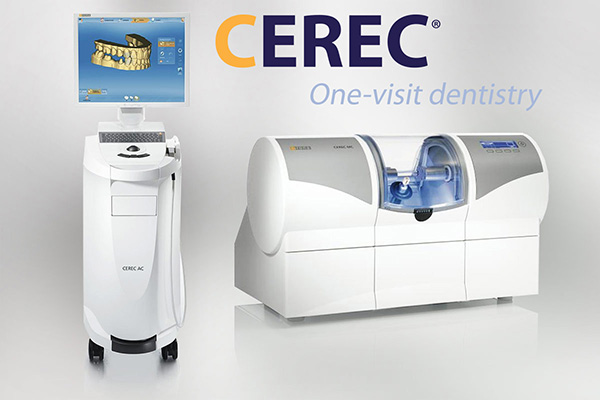
Chairside Economical Restorations of Esthetic Ceramic or CEREC® for short is a new state-of-the-art method of constructing tooth restorations. CEREC® uses computer-assisted design (CAD) and computer-aided manufacturing (CAM) to offer single-day restorations for patients. This new technology has revolutionized ceramic restorations such as crowns, bridges, veneers, and onlays for patients so that there is no longer a 2-3 week wait between crown preparation and crown delivery appointment. The restorations created are metal-free and tooth colored to restore your tooth to its natural beauty, strength, and function. With CEREC®’s CAD-CAM technology, these ceramic restorations can all be done in one single visit to the dentist.
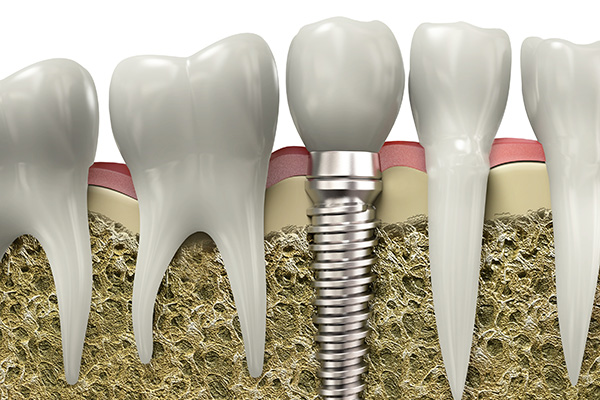
A dental implant is an option to replace a missing tooth. In this procedure, a small titanium shaft is surgically implanted into the bone and allowed to set. The bone grows around it forming a tight connection, which additionally slows or stops the bone loss that occurs when the root of a natural tooth is missing. Once the implant is firmly set in the mouth, the dentist then works to attach the replacement tooth (crown) onto the top of the shaft. Dental implants are preferable to bridges because they preserve and place less stress on your natural teeth. Dental Implants can also serve as anchors to hold down a denture or a partial.
Dr. Markham is trained in the restoration and placement of dental implants. We will be glad to look at your case and see if you might be a candidate for this exciting tooth replacement option!
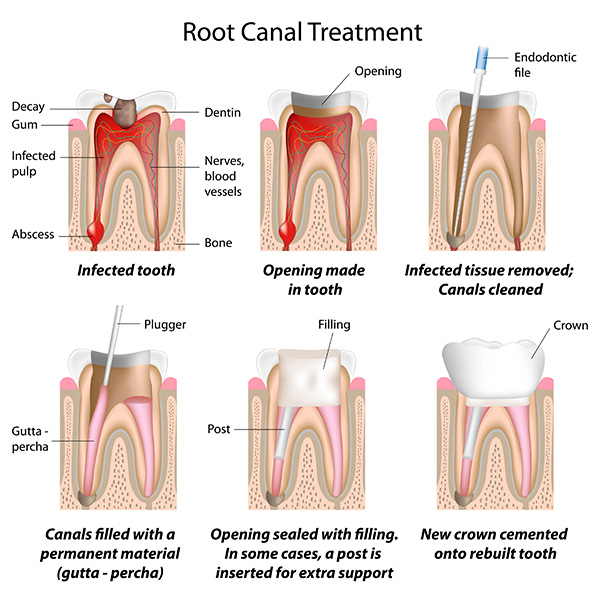
Root canal treatment (also referred to as root canal therapy or endodontic therapy) becomes necessary when a cavity reaches all the way to the pulp of a tooth. It is also possible for deep restorations or tooth trauma to cause the nerve to be damaged to the point it needs root canal therapy. Once this occurs the pulp becomes infected, and can allow infection to spread through the root tip and begin to eat away at the surrounding bone (this is an abscess). By the time the pulp is infected it must be treated, and cannot heal on its own. It can even weaken the entire immune system. This is dangerous, not to mention very painful. Symptoms that the pulp has become infected may include sensitivity to hot/cold or sweets, pain, swelling, pain to biting or pressure, and a bad taste in the mouth. However, it is possible to have no symptoms and be unaware of the problem until a checkup.
A root canal is then performed to clean out the infected tooth pulp and disinfect the canals of the tooth. The only other treatment would be to extract the tooth. Once the infection is resolved, the canal(s) are filled in to prevent any further infection. Usually a core build-up and crown is recommended for restoring a tooth that has had root canal therapy.

The American Dental Association currently recommends that your child first see a dentist by age one. We strive to make your child’s dental visit a positive one!Prevention is our approach with children; we teach healthy nutrition habits as well as proper home care for those little ones.

Fillings are done to remove decay, and replace the affected tooth structure. Most people prefer fillings using bonded tooth colored composite resin fillings. Caught early enough, cavities can be treated easily and painlessly.
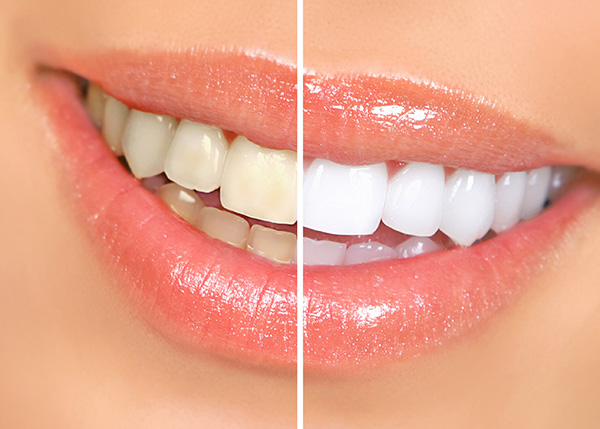
We offer a wide variety of cosmetic options. Some of these options are whitening, smile design, re-contouring of the shape of the teeth, veneers, bonding, and all ceramic or porcelain crowns.
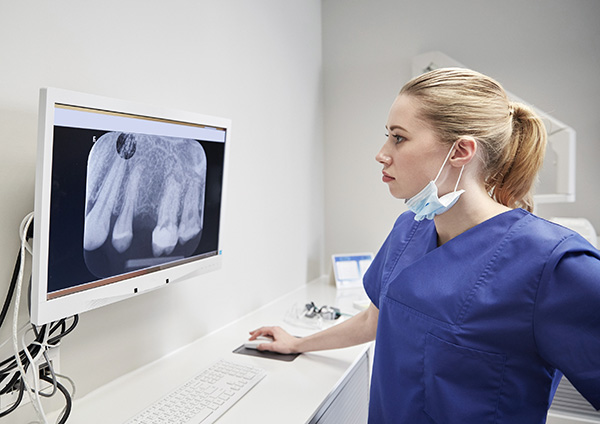
Sometimes teeth may be damaged, infected, or broken to the point that they cannot be saved. Our office performs simple and surgical extractions. We also offer bone grafting and implant procedures needed to replace missing teeth.

There are different types of dentures, but they share a common function. They replace teeth that have become loose or been lost due to bone loss. When bone loss around the roots of teeth is great enough to loosen them or let them fall out, it’s time for dentures. Relax. No one enjoys losing their natural teeth, but you can still eat and talk regularly.
Our office offers several types of dentures or partial dentures customized to each patient’s individual needs. Some options include implant retained dentures, partial dentures, immediate dentures, and complete dentures. A full mouth examination is necessary to present individualized treatment options.
There is an adjustment period after dentures are placed which can take some getting used to. But once accustomed to the dentures, normal functionality and appearance return and one just carries on as usual. Often implants can be used further stabilize the dentures and partials.

When gingivitis progresses to periodontitis you begin to lose the supporting gum and bone around your teeth. If left untreated, periodontal disease can cause gum infections, abscesses, pain, bad breath, and tooth loss. Periodontal disease is initially treated by performing periodontal “deep cleanings” under local anesthesia. Also, the frequency of dental cleanings and exams is changed from a 6 month frequency to a 3 or 4 month frequency. If periodontal disease is severe enough, it may require referral to a Periodontist for possible surgical therapy.

Bite guards or bite splints are made to protect your teeth from damaging forces nighttime grinding or clenching. Bite splints can be made to help with TMJ issues or headaches. Bite guards can be made to protect your teeth from potential sports accidents.

